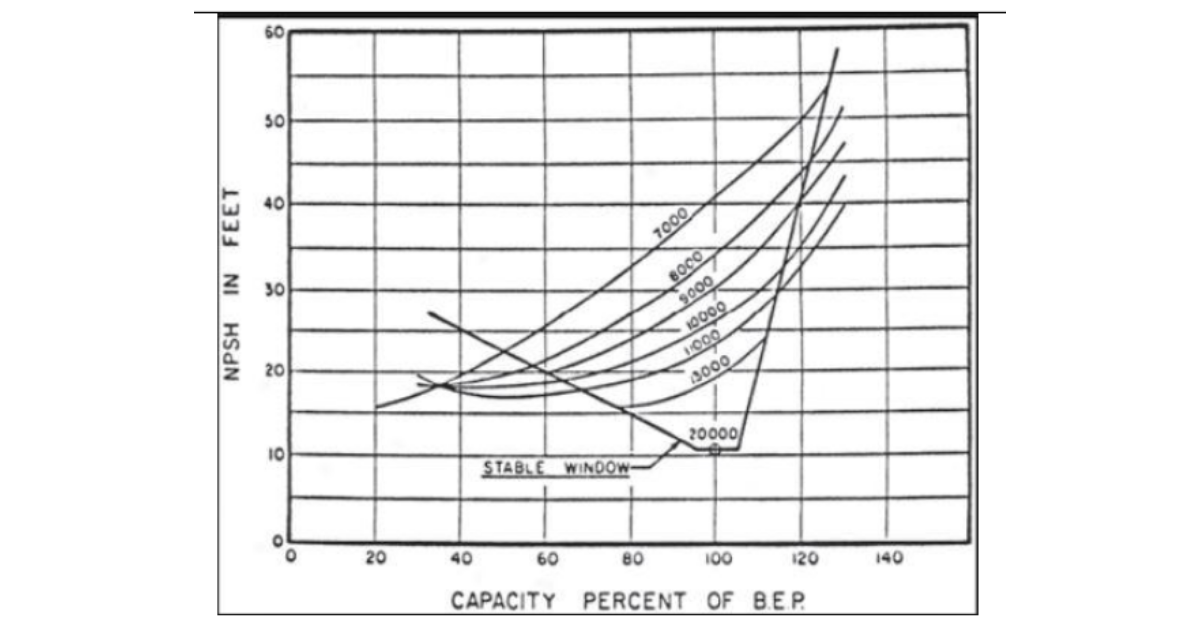Theory bites is a collection of basic hydraulic theory and will touch upon pump design and other areas of pump industry knowledge.
Suction Specific Speed – Nss – can be useful when evaluating the operating conditions on the suction side of pumps. Suction Specific Speed is used to determine what pump geometry – radial, mixed flow or axial – to select for a stable and reliable operation with max efficiency without cavitation.
NSS can also be used to estimate safe operating ranges.
Suction Specific Speed can be compared with Specific Speed but instead of using the total head for the pump, the Required Net Positive Suction Head (NPSHr) is used.
Nss have the same value for geometrically similar pumps. As a rule of thumb, the Specific Suction Speed should be below 9000 (calculated with US GPM) to avoid cavitation and unstable and unreliable operations.
Empirical studies indicate that safe operating ranges from Best Efficiency Points (BEP) are more narrow at higher Suction Specific Speeds.




